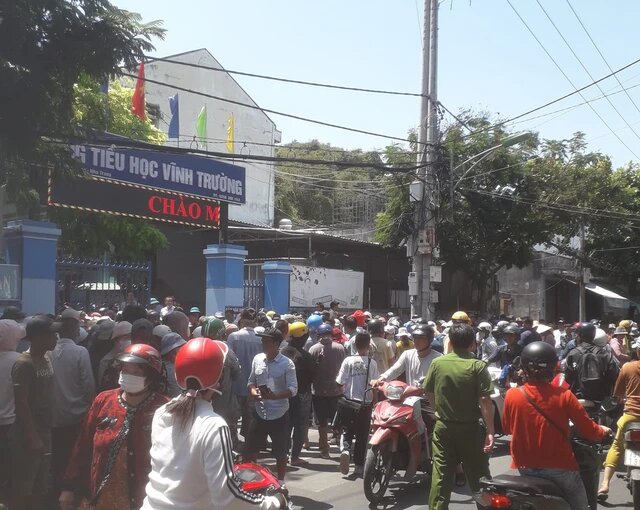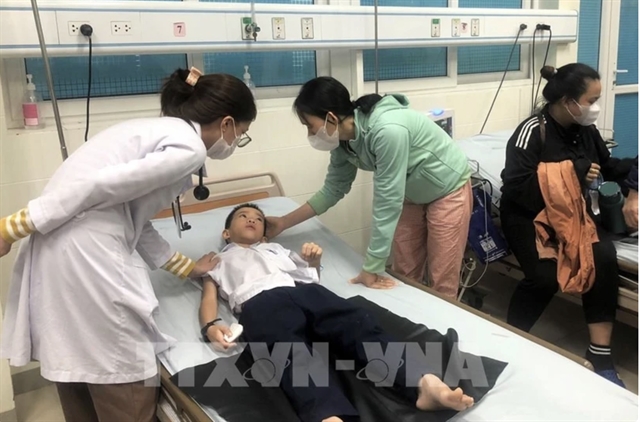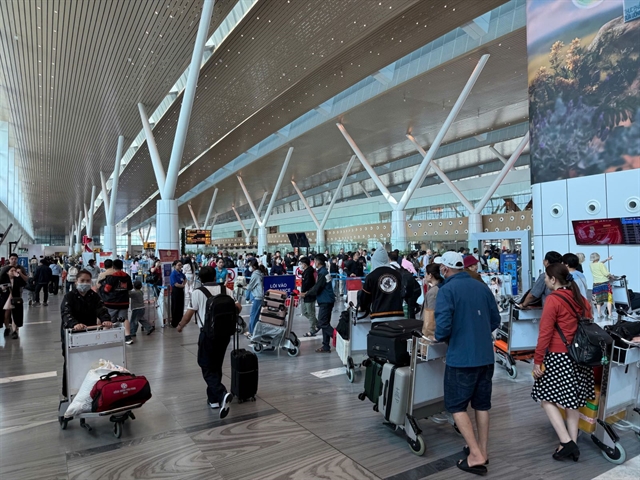 Society
Society

 |
| A medical worker checks a boy who had symptom of food poisoning. VNA/VNS Photo |
KHÁNH HOÀ — Several students in Khánh Sơn District of the south-central province Khánh Hoà were hospitalised after eating rice balls and rolls sold by local people in front of the school gates, reported the district’s medical centre.
Around 10am on Tuesday, the students who had this food exhibited issues like fatigue, nausea, abdominal pain and frequent loose stools. Then they were taken to a medical facility for initial treatment.
As of 4pm the same day, 31 students were taken to medical facilities, of which, four were discharged as outpatients, and 27 are being monitored for treatment. Their health was temporarily stable.
According to initial information, the students bought the food from a local people at the gates of preschool, primary and secondary schools in Tô Hạp Town.
After receiving information about the case, the Khánh Sơn Medical Centre implemented measures to handle mass food poisoning according to regulations.
From March 12 to date, Khánh Hoà Province recorded three consecutive cases of suspected food poisoning from eating at restaurants and street vendors.
The latest was the case of dozens of students being hospitalised after eating breakfast from the joints in front of the school gates in Vĩnh Trườn Ward of Nha Trang city, including one student who died on the morning of April 5.
On April 5, the Department of Education and Training of Khánh Hoà Province issued urgent dispatch 930/SGDĐT-VP to relevant units on the implementation of food safety and food poisoning prevention and control at educational establishments.
The provincial education authorities requested that units promote information dissemination to raise awareness and responsibility of officials, teachers, employees, students and parents in food safety and food poisoning prevention and control, strictly manage the origin of food, domestic water sources and stages of food processing, preserving and transporting in schools as well as comply with the three-step delivery and verification process and storing food samples according to regulations.
Schools have to proactively develop plans and scenarios for responses to food poisoning incident as well as promptly detect and report to local authorities food establishments and individuals near school campuses that might be lacking in food safety and hygiene.
The heads of the educational institutions are fully responsible if food poisoning occurs in the canteens managed by the schools. — VNS




